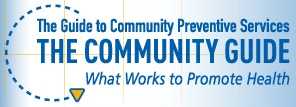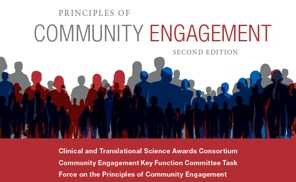Links Related to the NCCCP
The Guide to Community Preventive Services (Community Guide)

The Community Guide contains strategies for promoting community health, including—
- What works.
- How well a strategy works.
- Who it works for.
- Where it can be put into action.
- What it costs (if that information is available).
Some of the cancer-related topics that the Community Guide has considered include—
Cancer Control P.L.A.N.E.T.

Cancer Control P.L.A.N.E.T. helps health educators, program staff, researchers, and cancer control planners find ways to translate research into action and to raise the number of approaches to cancer control based on systems that have been shown to work. It includes resources on tobacco control; physical activity; sun safety; breast, cervical, and colorectal cancer screening; making decisions about prostate cancer screening; nutrition; and cancer survivorship.
Cancer Control P.L.A.N.E.T. is a joint project of CDC, the National Cancer Institute (NCI), the Substance Abuse and Mental Health Services Administration, the American Cancer Society, the Agency for Healthcare Research and Quality, and the Commission on Cancer.
State Cancer Profiles

CDC and NCI developed the State Cancer Profiles Web site to provide cancer control planners and policy makers with a system to describe the cancer burden in a standard way. It includes data collected from public health surveillance systems such as—
- NCI’s Surveillance, Epidemiology, and End Results program.
- CDC’s National Program of Cancer Registries, National Vital Statistics System, and Behavioral Risk Factor Surveillance System.
- Death data from CDC’s National Center for Health Statistics.
Note: The cancer incidence data provided in State Cancer Profiles are the same as those published in the United States Cancer Statistics report, plus additional data from selected states.
Principles of Community Engagement (Second Edition)

Principles of Community Engagement (Second Edition) gives public health professionals, health care providers, researchers, and community leaders and organizations guidance for joining with community partners in projects that may affect them. This guide can be used by people in a range of roles, from the program funder who needs to know how to engage the community, to the researcher or leader needing needs hands-on, practical information for getting people to partner in their research.
- Page last reviewed: March 16, 2016
- Page last updated: March 16, 2016
- Content source:
- Maintained By:


 ShareCompartir
ShareCompartir